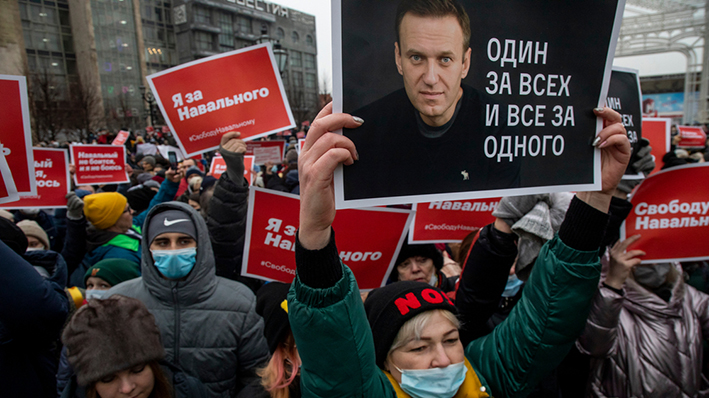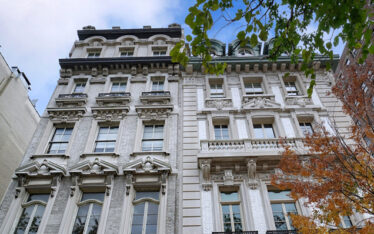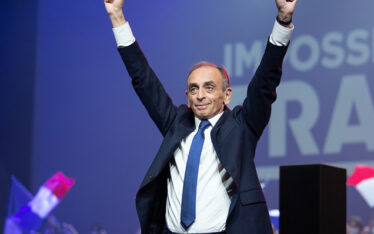
NickolayV/Shutterstock.com
The Russian political crisis concerns everyone. The crisis, of course, isn’t described as such by the authorities. It manifests itself in a clear movement towards an even more authoritarian and controlling government.
AUTHORITARIAN
Russian President Vladimir Putin continues to tighten his grip over various aspects of social, cultural, and political life.
It is easy to feel distant, especially given the Cold War hangover of opinions towards the country and its government. However – especially if we are to have any semblance of empathy in politics – this is also a matter of basic political liberties.
There are two dimensions to this argument. One concerns the global political stage, and the other – human rights.
THE GLOBAL CONSEQUENCES
Putin’s government has been cracking down on the media. The extent of this in recent news is perhaps best encapsulated by the (de facto) expulsion of BBC Moscow correspondent Sarah Rainsford. According to Reuters, she was denied an extension of her visa in August.
This is the first case of its kind in two years. And it is alarming. Russian authorities state that this is in retaliation for poor treatment of Russian journalists on part of Britain and the failure to provide them with Visas.
In her commentary in New Statesman, Rainsford says she’s been labelled as a ‘security threat’ by the FSB – Russia’s principal security agency.
cracking down
In what seems to be a clear deterioration of relations between the UK and Russia, it is also a worrying sign of political crackdown.
With legislative elections coming up at the end of September, and with already limited English-language news media in the country, this can only sound alarm bells.
Following a series of political attacks against Russia’s own news and media organisations – including Meduza, Dozhd, and Opposition leader Alexei Navalny’s website – Rainsford’s case signals a further plunge into Cold War levels of relations between Russia and the West.
a new cold war
Navalny’s organisation and Dozhd TV (an independent channel) have been designated as “foreign agents”. According to AP, this implies increased scrutiny by the authorities as well as the obvious negative implications that could affect readership and viewership.
If this is a step towards a New Cold War, it is everyone’s problem.
While relations are clearly not at the level – neither financially, nor in terms of foreign expansion – that the USSR found itself in during the peak of the Cold War, Russia is taking both geopolitical and ideological steps in that direction.
AGGRESSIONS
This, then, can become a genuine security threat. Firstly, Russia’s annexation of Crimea, and involvement in the 2016 US Presidential Elections shows the aggressive tendencies of Russia in recent years.
As the authorities crack down on internal and external media, the situation can only get worse.
Furthermore, although much less likely, the threat of nuclear strikes remains. The chances are much lower, given the existence of arms deals such as New START (a nuclear arms deal extended at the beginning of Biden’s term) and mutual assured destruction, nuclear arms remain an important piece of this puzzle.
A HUMAN RIGHTS CRISIS
The second side of this argument pertains to the standard of liberal democracy the West seems to strive for.
The rights and liberties of Russian citizens are in danger.
Russians are at best being deprived of free media and at worst being subject to dangerous levels of control and subjection to the government.
crushing protests
The authorities’ crackdown on political protests recently have turned very violent, with protests in favour of fair local elections in Moscow in 2019 leading to thousands of detainees and many protesters being beaten by police.
This can get deadly.
The trauma suffered by Soviet citizens not that long ago urges us to act with caution.
LAWS FOR THE OCCASION
Politics are already getting more authoritarian, and quickly. One of the enacted 2020 Constitutional Amendments following a referendum resets Putin’s presidential terms, giving him the ability to run for a fifth time.
The New York Times described various methods – including adding a provision for a ban on gay marriage – utilised by the government to churn turnout in support of the amendments and further break down any standing illusions of democracy.
So, the stakes are high. Russian politics concern everyone: both as a matter of human rights as well as on the geopolitical stage. Russian political crackdowns, especially on the media, will likely continue to be a part of global news for months to come.
no win situation
Both the Russian people and the world at large stand to lose if this escalates.
About the Article
A look into one individual’s experience in having a COVID vaccination from her native country not be recognized in the country where she is studying.



